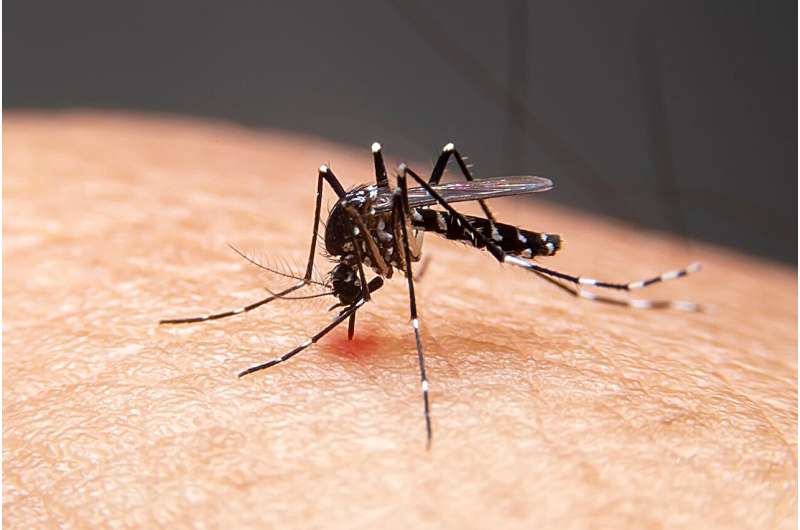This article has been reviewed according to Science X's editorial process and policies. Editors have highlighted the following attributes while ensuring the content's credibility:
fact-checked
reputable news agency
proofread
What is oropouche virus? CDC warns of cases linked to South America travel

An insect-borne virus that can cause birth defects and deaths has prompted warnings from the United States for travelers headed to locales in South America and the Caribbean.
Oropouche virus has caused two deaths and five cases of fetal death or birth defects among more than 8,000 cases this year, in an outbreak stretching from the Amazon basin to Cuba, the U.S. Centers for Disease Control and Prevention said in a recent health advisory.
The CDC is warning pregnant women to reconsider travel to any countries in which Oropouche is circulating.
"If travel is unavoidable, pregnant travelers should strictly follow Oropouche virus prevention recommendations, to prevent insect bites during travel," the CDC said.
The U.S. has had 11 travel-related cases of Oropouche this year, the CDC said. However, there's no evidence the virus has started to circulate in North America.
Oropouche is spread by biting midges and some mosquitos, the CDC says.
About 60% of people infected with Oropouche develop symptoms, the CDC says. Common symptoms include fever, severe headache, muscle aches, chills and joint pain.
The illness typically subsides after a few days, but about 7 in 10 people experience recurrent symptoms days or weeks after their initial infection, the CDC says—essentially, long Oropouche.
Fewer than 5% of patients infected with Oropouche will develop more serious conditions like meningitis or bleeding.
Brazil also has reported five cases in which infected pregnant women lost their babies or had children born with birth defects. The defects included microcephaly, in which a baby is born with a small, underdeveloped head.
There are no vaccines or medicines to prevent or treat Oropouche, the CDC says. Avoiding bug bites is the best way to protect against infection.
Countries reporting cases of Oropouche include Brazil, Bolivia, Peru, Colombia and Cuba, the CDC said. U.S. and European cases of Oropouche occurred in travelers returning from Cuba and Brazil.
Oropouche was first detected in 1955 in Trinidad and Tobago, and is endemic in the Amazon basin, the CDC said. Previous outbreaks have occurred in Bolivia, Brazil, Colombia, Ecuador, French Guiana, Panama and Peru.
The CDC is recommending that travelers to nations affected by Oropouche avoid biting midges and mosquitos both during travel and up to three weeks after returning home, to prevent the spread of the virus into the United States.
"All travelers can protect themselves from Oropouche, dengue, Zika and other viruses transmitted by insects by preventing insect bites, including using an Environmental Protection Agency [EPA]-registered insect repellent; wearing long-sleeved shirts and pants; and staying in places with air conditioning or that use window and door screens," the CDC said in its advisory.
More information: The U.S. Centers for Disease Control and Prevention has more about Oropouche virus.
Copyright © 2024 HealthDay. All rights reserved.



















